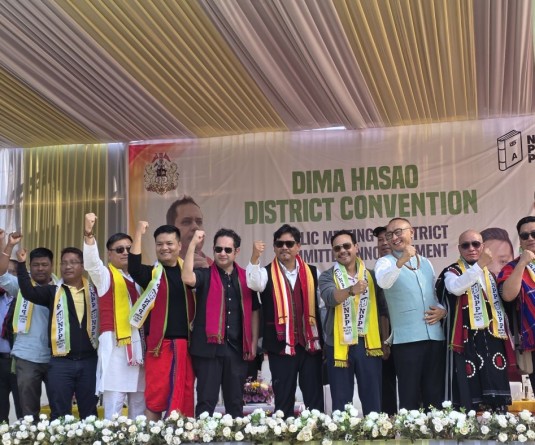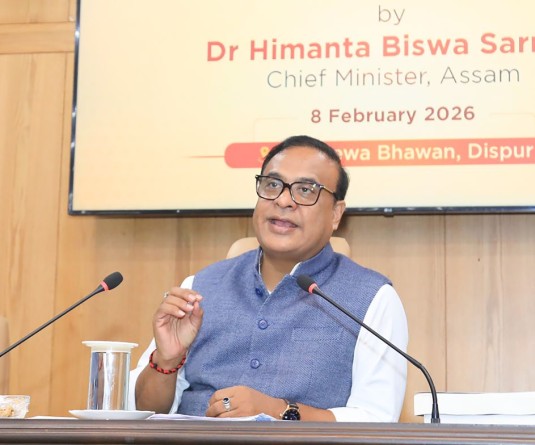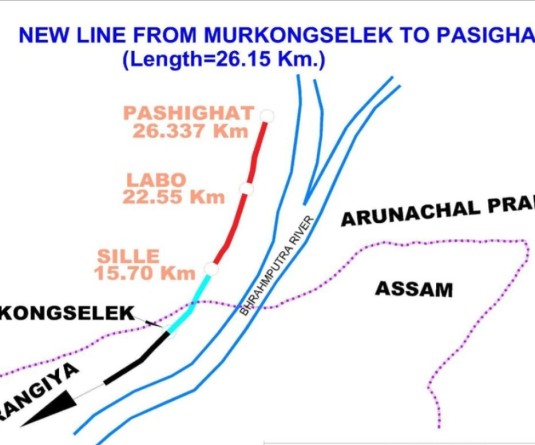
Shillong, Novenber 29 (IANS): After lying low for months, an apex body of over 17 organisations are intensifying their agitation for an Inner Line Permit (ILP) system across Meghalaya to keep the hill state out of Citizenship (Amendment) Act (CAA) purview.
The Confederation of Meghalaya Social Organisations (CoMSO) has been spearheading the agitation since last year for the introduction of ILP in the remaining part of the state.
It resumed its stir from Friday with the organisation of black-flag protests across Meghalaya.
The agitation for ILP was suspended during the Covid-induced situations and government's restrictions. A CoMSO Secretary Roy Kupar Synrem said that they would hold sit-in demonstrations in all 11 districts and in some sub-divisional headquarters besides in Shillong on December 4.
"We have been asking all 60 Meghalaya MLAs and three MPs of the state to hold sit-in demonstrations in Delhi to ensure that the ILP is enforced in the state soon," Synrem told IANS over phone on Sunday.
He said: "Even though Meghalaya Assembly had unanimously adopted a resolution on December 19 last year, the Home Ministry is yet to take appropriate steps to enforce the ILP in the remaining part of the state."
The Meghalaya Assembly resolution and the state gazette notification was communicated to the Home Ministry in December last year.
The CoMSO leader warned the National People's Party-led Meghalaya Democratic Alliance (MDA) government that if the ILP was not implemented in the next few months, there would be more protests across the state.
The Bharatiya Janata Party with two MLAs is part of the MDA government in the state and one of the legislators Alexander Laloo Hek is the Health Minister.
The ILP was in force in Arunachal Pradesh, Nagaland, Mizoram. On December 11 last year it was promulgated in Manipur under the Bengal Eastern Frontier Regulation, 1873, to allow for inward travel of an Indian citizen into a protected area for a stipulated period.
To visit the ILP-governed states, foreign nationals and even people from other states of India, now need to take written permission.
The main aim of the ILP system is to check settlement of other Indian nationals in these states to protect the native population. There are also protection extended to indigenous people with regard to land, jobs and other facilities.
The ILP is currently issued for a minimum of 15 days and maximum one year, depending on the applicant's purpose and necessity.
The Arunachal Pradesh and Nagaland governments are issuing the ILP through the online process to facilitate any Indian to obtain this from anywhere in the country.
The central government had earlier announced that the CAA would not apply to the ILP and the Tribal Autonomous District Council (TADC) areas.
In the northeastern states there are 10 TADCs, constituted under the Sixth Schedule of the Constitution. While Assam, Meghalaya and Mizoram have three TADCs each, Tripura has one.
All eight northeastern states and neighbouring West Bengal witnessed violent protests for many weeks last year and early this year against the CAA.
Notified on January 10, the Citizenship (Amendment) Act 2019 (CAA) seeks to grant Indian citizenship to non-Muslims minorities -- Hindus, Sikhs, Buddhists, Jains, Parsis and Christians, who have migrated from Bangladesh, Pakistan and Afghanistan till December 31, 2014, after facing faith-based persecution.






